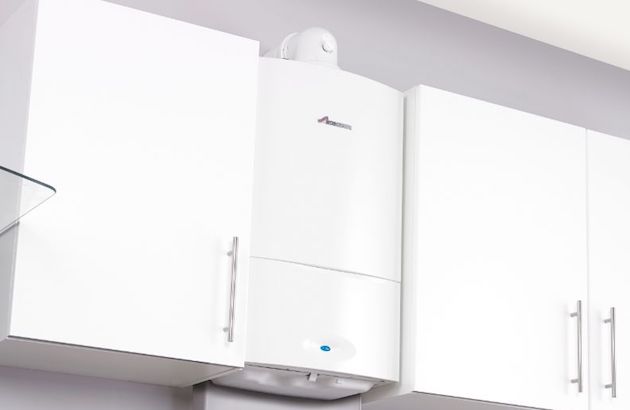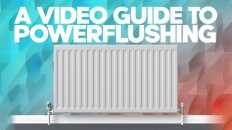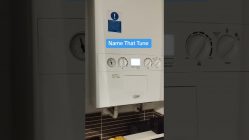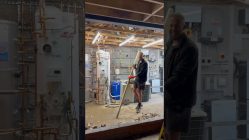There are boilers to suit large homes, small homes, homes with one shower, homes with multiple bathrooms and everything in between, making it difficult to pick the right boiler for you and your home. Hence, we have outlined a couple of pros and cons of each to help you when you’re next in need of a new boiler…
Combination ‘combi’ boiler
Combi boilers are the most common type of boiler installed in the UK as they are the most practical and compact. Unlike others, they do not require water tanks or cylinders and operate from one unit. They heat the water directly from the mains water supply as and when it is needed, meaning you needn’t wait for a water tank to heat up. This also means that no hot water or energy is wasted, as you only heat up what you need.
The boiler unit is so compact that it is typically installed in a kitchen cupboard, making combi boilers ideal for homes with limited space. They are best suited for homes with only one bathroom as using more than one appliance will create a decline in water pressure. As well as this, there is not a backup source of hot water if your boiler breaks down, making it less reliable than other boilers. Combi boilers are also not compatible with solar thermal panels.
System boilers
System boilers heat your central heating whilst supplying hot water directly to a storage cylinder. To help save space, most components are built into the boiler itself, making system boilers ideal for homes that do not have room for water tanks and ensuring that they’re quicker and easier to install than conventional boilers.
There is however, a need for a storage cylinder, which is typically placed in an upstairs cupboard. This has a few drawbacks, such as the need to keep it and the pipework very well insulated (otherwise risk losing heat from the boiler) and the need to wait for the cylinder to refill once it has ran out of hot water.
Conventional boilers
Conventional boilers use a hot and cold water tank, usually stored in the loft. As water travels through the central heating system, it is heated and stored in the appropriate tank until needed. Conventional boilers do not rely on mains pressure, so can provide consistent and reliable hot water, even in areas with low mains pressure, making them ideal for homes that need lots of warm water.
Conventional boilers are generally suited for larger homes as they require a lot of space for the two water tanks and a water cylinder. Because of this, they are decreasing in popularity, as many homeowners are slowly opting for other, more practical options, like the combi boiler. Also, the many components make them more time consuming and generally more expensive to install.






